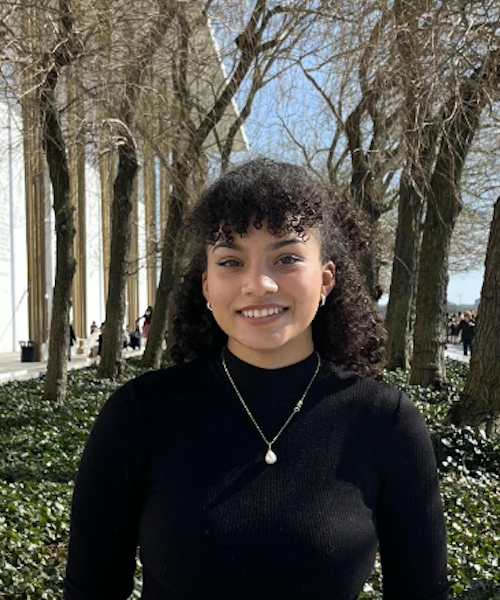
The Value of Different Points of View
Angela Hayes | December 19, 2022
Responding To: Georgetown Students Share Thoughts on Student Dialogue Experience with Peking University
Ameena Razzaque
Although I am a graduate student in the Asian Studies Program at Georgetown’s School of Foreign Service, I have not taken a class focusing on China or engaged with China in any capacity prior to this initiative. Consequently, I was anxious to engage with students from Peking University and worried that I did not have enough prior knowledge to engage with students. However, this was far from the case. The readings provided by the initiative were informative, the guided discussion questions helpful, and the students from both groups ready to learn and listen to each other. The students from Peking University were a wonderful group of peers to engage with and offered a lot of thoughtful comments to our discussions.
Furthermore, it was interesting for me to realize that there were not any other students who looked like me or had a strong background in South Asia. Therefore, I was able to offer different perspectives and knowledge to a conversation about U.S.-China relations, especially when the main topic revolved around global development and South Asia is primarily a conglomeration of developing countries. I was happy to hear critiques of both the United States and China offered from both groups and an awareness that the most important actors–people from developing countries and diverse regions–were not included in this conversation.
One of my favorite moments from the dialogue was during our second session, when as a group, we decided that China’s GDI was similar to the UN SDGs and had deep flaws in the framework due to the inclusion of broad and vague goals. We also had an engrossing discussion on climate change, natural disaster response, and U.S.-China’s role in such frameworks and their responsibility to the developing world. Even though everyone in the group had different ideas and definitions of what emergency response means and diverging opinions on the roles of United States and China, everyone was mature and understanding of each other’s opinions. Peers critiqued and questioned respectively and challenged for the larger purpose of enacting change in the future.
At the end of the three weeks, I was sad to let go of a small community I had created with the Peking students and of learning so much from their perspectives. From talking at length on development frameworks, poverty alleviation, climate change, clean energy, and natural disasters, each session tackled a different dimension but built upon the last session. I was happy to make new friends with students from Peking and hope to keep in contact with them.
Initiatives such as this one give me hope about U.S.-China relations despite pessimistic news. It would be powerful to one day have both nations work together to address some of the world’s most pressing issues and collaborate towards creating a feasible, informed development framework. China is an important factor in strengthening global development and much can be learned from how it responds to disasters in the future. Even though this is my first brush with China and Chinese students, I certainly hope this is not the last, and look forward to engaging further with China’s history, culture, politics, and people with differing perspectives to rebuild trust.
Ameena Razzaque (MASIA’23) is studying to receive her master’s degree from Georgetown School of Foreign Service Master’s in Asian Studies program.

Angela Hayes | December 19, 2022

Hanh Duong | December 19, 2022

Will Foster | December 19, 2022

John Williams | December 19, 2022

Miles McInerney | December 19, 2022

Ignacio Albe | December 18, 2022

Margaret Lin | December 18, 2022

Amisha Gupta | December 18, 2022

Bailey Brya | December 18, 2022

Jasmine Terry | December 18, 2022